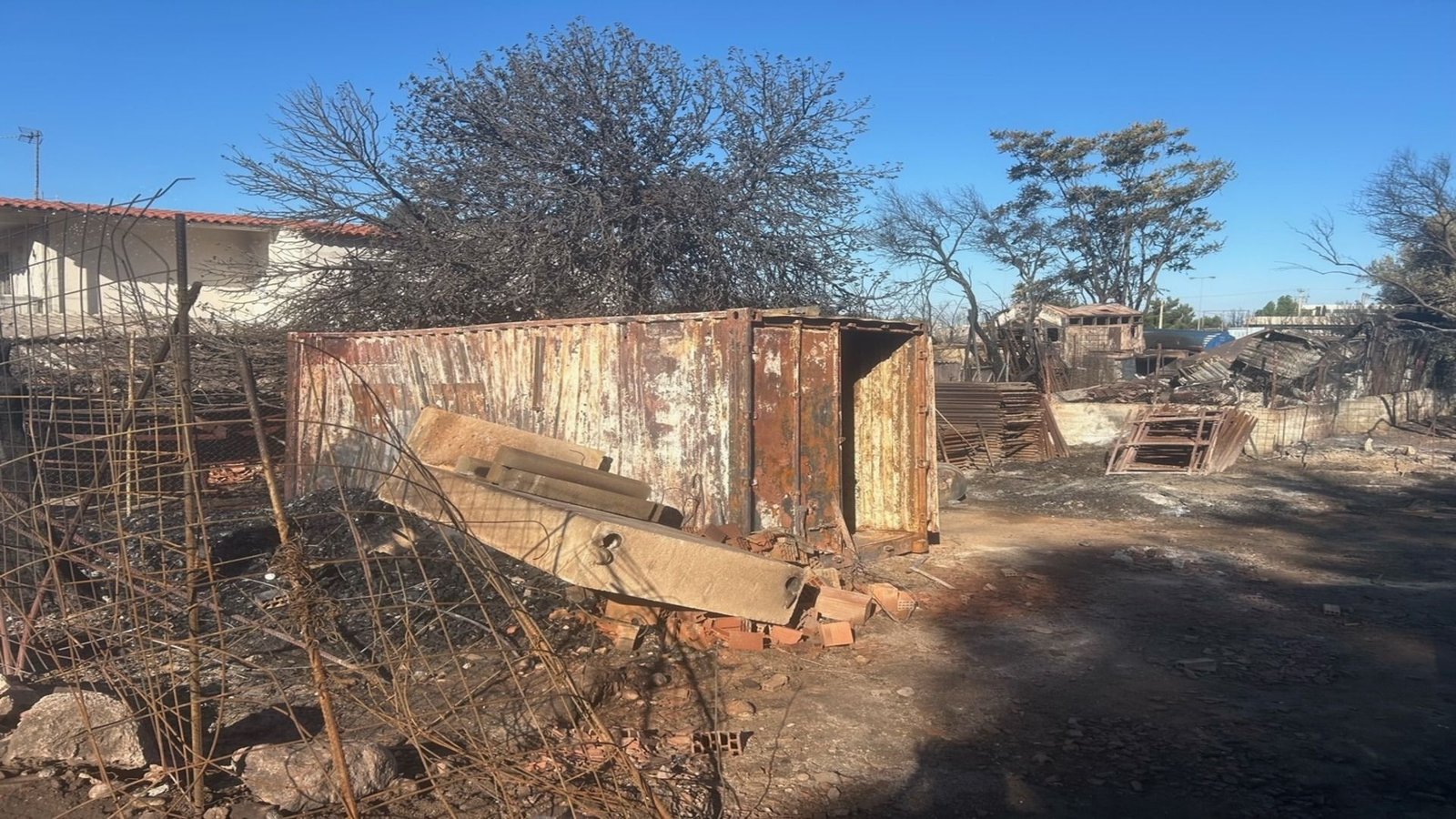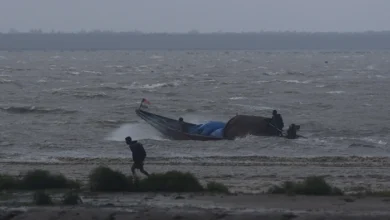
A new evacuation alert for the Greek seaside town of Nea Makri has been ordered on Tuesday, as fierce wildfires continue to affect the suburbs of Athens. One person has died, with a body, believed to be of a woman, found inside a shop in the town of Vrilissia, northern Athens, a source from the fire service told the BBC.
Thousands of people have been evacuated after firefighters warned that homes, businesses and schools were under threat. The huge smoke cloud that lingered over Athens cleared as Tuesday dawned, although the air is still hazy. Helicopters were circling the skies after being grounded overnight for safety reasons. Residents in areas of Athens that haven’t even been directly affected by the fire said they have found ash settling on their balconies.
Firefighters, who have told the BBC they are “exhausted”, appear to be focussing on hotspots rather than one major fire front.
Fire service spokesman Col Vassilios Vathrakogiannis said while there was no longer a single active fire front in the north-eastern Attica region, which includes parts of Athens, there were still “many active localised blazes”, mostly around the towns of Marathon and Penteli. Conditions for new fires remain dangerous not only on Tuesday, but also for further into the week, he said in a statement released on Monday evening.
More than 700 firefighters, 199 fire engines and 35 waterbombing aircraft have been involved in efforts to extinguish the fires, which first broke out on Sunday afternoon around 35km (22 miles) north of the Greek capital.
Col Vathrakogiannis said two firefighters had received treatment for burns while fighting the blazes. Officials said fires broke out in 40 different locations on Monday and that some areas saw flames as high as 25m (82ft).
In unprecedented scenes, people in Athens wore facemasks to protect themselves from the smoke, which blew into the city.
Source: BBC
In other news – Northern lights illuminate skies as far south as Cornwall
Stunning displays of the Northern lights have been seen right across the UK, coinciding for the second night in a row with the Perseid meteor shower. Skies as far south as Cornwall were lit up by the auroral display.
The Northern Lights – or aurora borealis – has made regular appearances in the UK over the last few months but it takes a particularly strong geomagnetic storm for it to be visible in southern England. Read more











